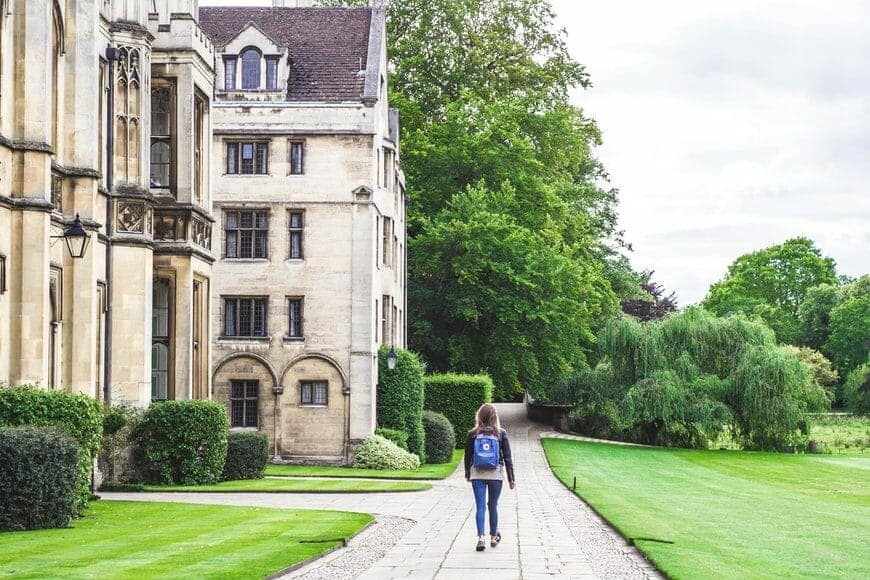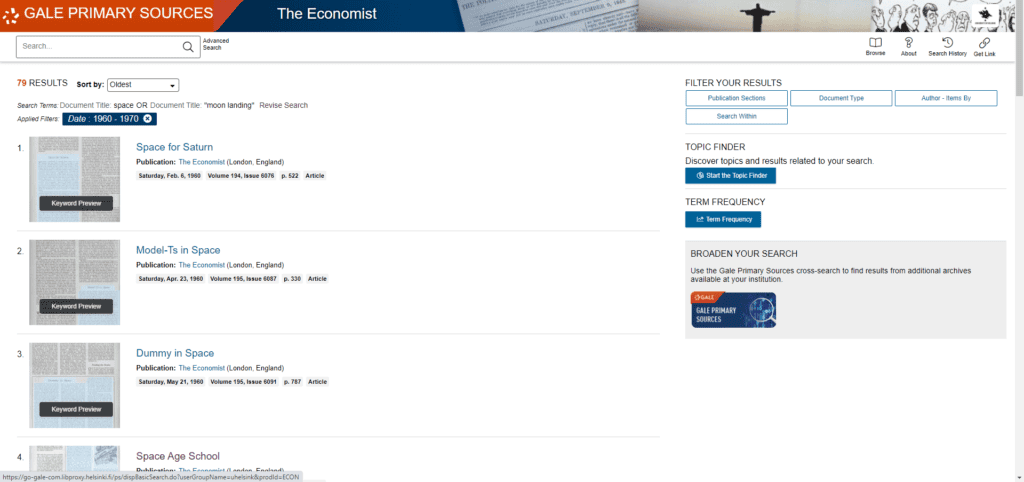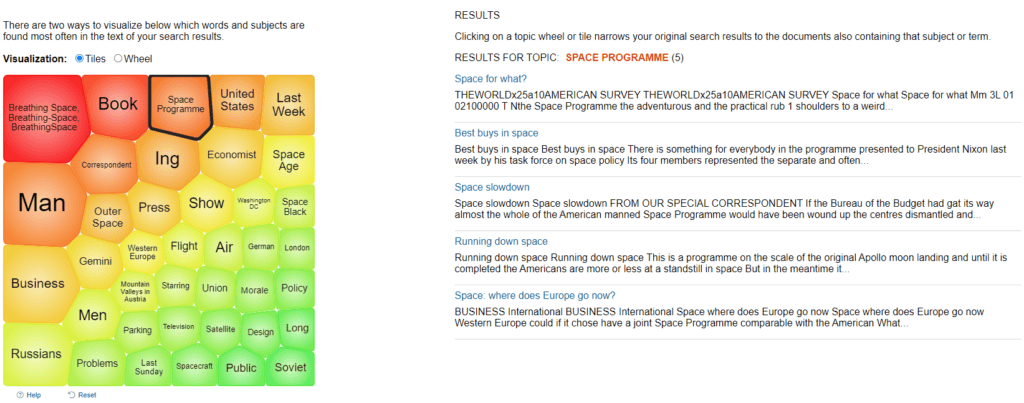│By Torsti Grönberg, Gale Ambassador at the University of Helsinki│
Starting your first week of university can undoubtedly feel daunting. When I think back to my first week at the University of Helsinki, I remember feeling overwhelmed by this strange new world I had thrown myself into. For many students, starting university means starting an entirely new chapter in their lives. Like me, you might not know anyone from your faculty, and you might be living in a completely unfamiliar city as well. University also requires an entirely different level of independence than your previous scholarly pursuits; there’s no one looking over your shoulder to make sure your work gets done on time – you and you alone are responsible for your studies. In this blog post I will detail a few tips and tricks I wish someone had told me at the beginning of my university studies and provide some general advice on how to make the most of university!
Hit the ground running
It may surprise you, but my first piece of advice has nothing to do with studying. Above all, I believe it’s vital that you make a concerted effort to get to know your new peers. Attend all the student activities you can and make sure you take part in events aimed specifically at freshers. This is a chance to meet new people, network and possibly create lasting friendships. University is a marathon, not a sprint and it is easier to face challenges together than alone. So get out there as much as possible and take part in all the activities designed to familiarise you with other students. If all goes well, you will find a welcoming community of people that you will be able to call on for help when you need it, and fingers crossed you will genuinely enjoy yourself, too! This is especially important in the age of the COVID-19 pandemic since most lectures (at least at my university) are held online, meaning you don’t get as many chances to meet your peers as students did prior to the pandemic.
Keeping with the theme of attendance, you really should attend all your lectures. Yes, even the ones that start (seemingly shockingly) early in the morning! It might feel tempting to take advantage of the fact that lecture attendance is not mandatory on many courses, but the easiest way to fail is to skip lectures. Habits are formed by actions, after all, and you definitely don’t want to get into the habit of sleeping in and missing lectures.
Get comfortable with research
Many assignments in university require you to look for sources on your lonesome, so I advise you to familiarise yourself with your university library and the library’s website. Knowing where to look (and how to do the looking) when you need to find a source for an essay or a project will be a useful skill that you will utilise for the entire length of your studies. You can always talk to your university’s librarians and ask them for help when you need it – they are there for you and it is their job to help you find the books and articles you need – but learning to find resources yourself is also a vital skill at university.
Using Boolean operators
Learning how to efficiently search for books and articles through your university library’s website – and how to refine such searches – is a skill that you will also be able to use when searching other databases and archives like Gale Primary Sources. In order to make accurate searches that return useful results you need to use Boolean operators. “What are these?” you may ask. Well, when you enter words into an archive’s search bar you can separate different terms with the operators AND, OR and NOT:
- AND: Putting the word AND between your search terms ensures the search engine only finds documents that contain all the terms you connected with AND.
- OR: With OR you can broaden you search to find documents that contain any of the words you have connected with OR.
- NOT: And finally, with NOT you can connect search terms together and exclude documents that contain your initial first search term if it also contains the second.
Quotation marks are also very helpful, since you can use them to make sure search engines find documents with all the terms mentioned and in the order you have specified.
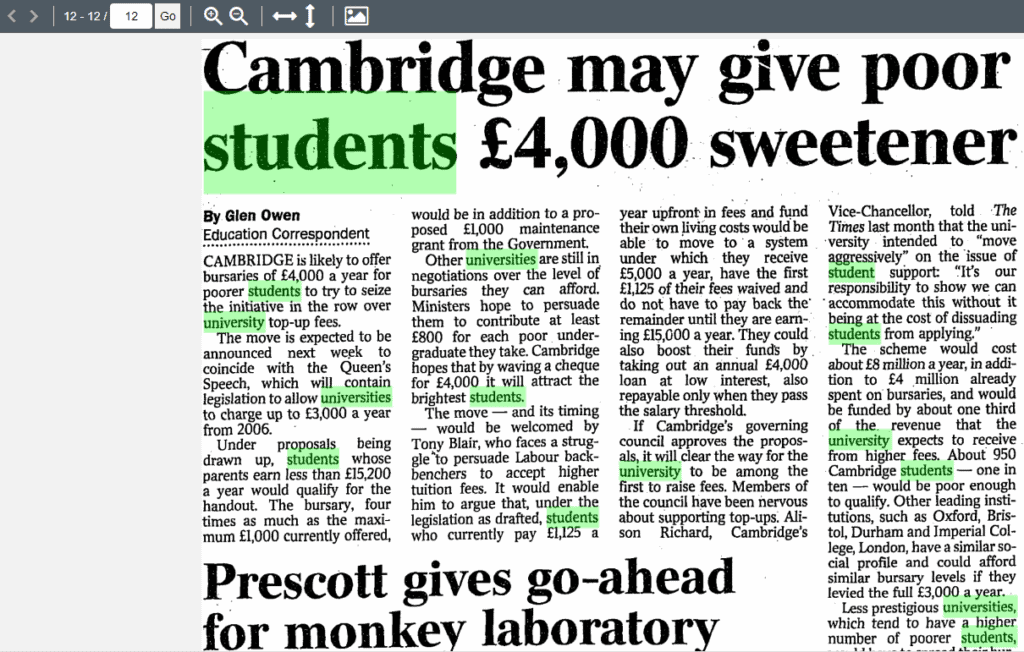
Owen, Glen. “Cambridge may give poor students £4,000 sweetener.” Times, 22 Nov. 2003, p. 12. The Times Digital Archive, https://link.gale.com/apps/doc/IF0502527835/GDCS?u=uhelsink&sid=bookmark-GDCS&xid=23c43745
You can make very specific searches using these techniques and this will help you find documents and primary sources even if there are mountains of documents to sort through. For example, if we want to find news articles from The Economist between the years 1960 and 1970 that include the word “space” or the words “moon landing” in the Document Title, we can go to The Economist Historical Archive and use the Boolean operators, Date Limiter, and quotation marks as mentioned above to search for documents that match our needs.
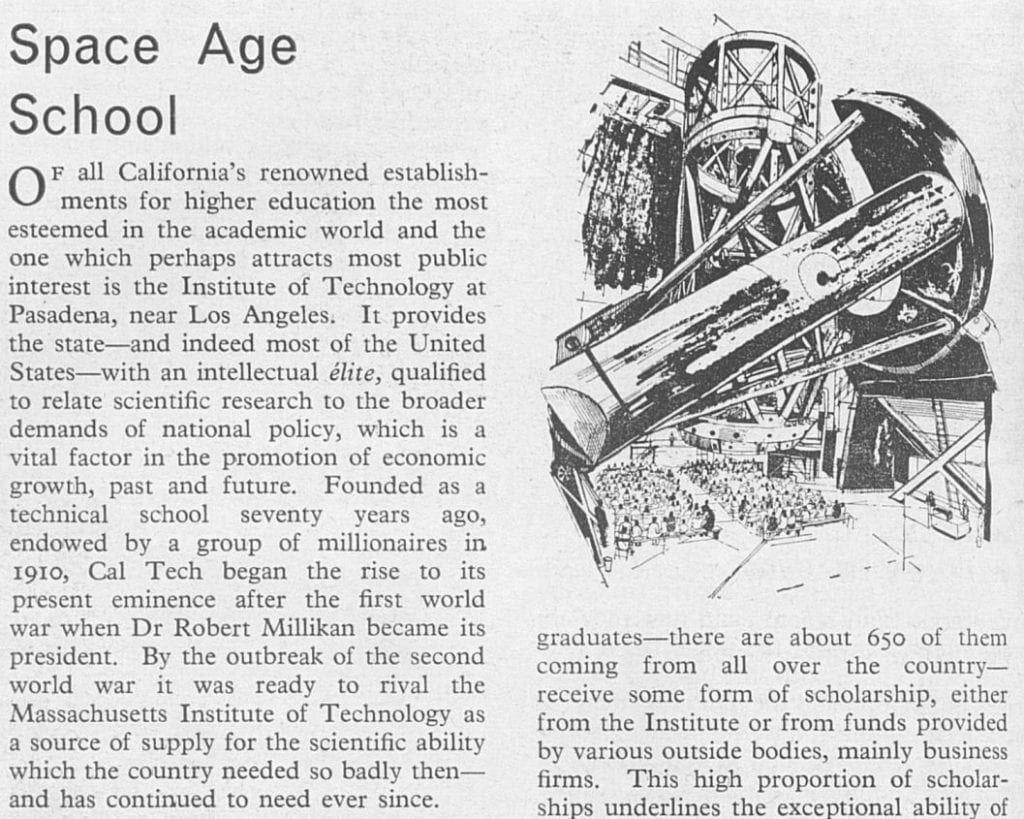
“Space Age School.” California State Of The Future. Economist, 9 July 1960, p. 164. The Economist Historical Archive, https://link.gale.com/apps/doc/GP4100875245/ECON?u=uhelsink&sid=bookmark-ECON&xid=0973b65c
The Topic Finder Tool
Using the Topic Finder feature in Gale Primary Sources I can filter through my search results even further and see sources related to my original search in a visual format. This makes finding what I want very easy and it can be surprisingly useful in finding inspiration for your projects. All of these examples illustrate that the different archives and databases available to you through your university library are filled with useful material and tools to help you utilise that material. If you spend some time exploring now, you will know how to search for information as soon as required, lowering your future workload considerably.
Work smarter not harder
Of course, finding the right sources is only half the battle! Another frequently given but key piece of advice is to start your projects well in advance so you have some breathing room if you encounter any difficulties. Plus, if it becomes clear that you will not be able to meet a deadline, inform your professor or module leader as soon as possible. Getting some extra time for your assignment is easier if you ask for it well in advance!
I would also advise all new students to save your assignments and projects in cloud storage, so if something happens to your computer you don’t lose them. Hang on to them too – after a year or two of university you will have completed assignments on a lot of topics which you might encounter again in the course of your studies. Those old assignments can be very useful! They often prove to be a treasure trove of sources and quotes for projects you may complete in the future.
And last but definitely not least, my final piece of advice is that I would encourage all new freshers to set aside a period of time each week in which you don’t complete any university work. Having at least one day a week that you keep for relaxation will be a lifesaver, helping you remain healthy and motivated throughout the term. University should be an enjoyable and fun experience, so making sure you have time for both yourself and your studies is vital.
If you enjoyed reading about my top tips for freshers, you might like:
- Coping at College – Research Resources and Mental Health
- Looking for Help Tackling Tough Academic Works? Try These Study Tips
- Disentangling Fact from Opinion in Academic Articles
- Using Primary Sources in Revision and Exam Preparation
Blog post cover image citation: Image by Victoria Heath available on Unsplash.com.

